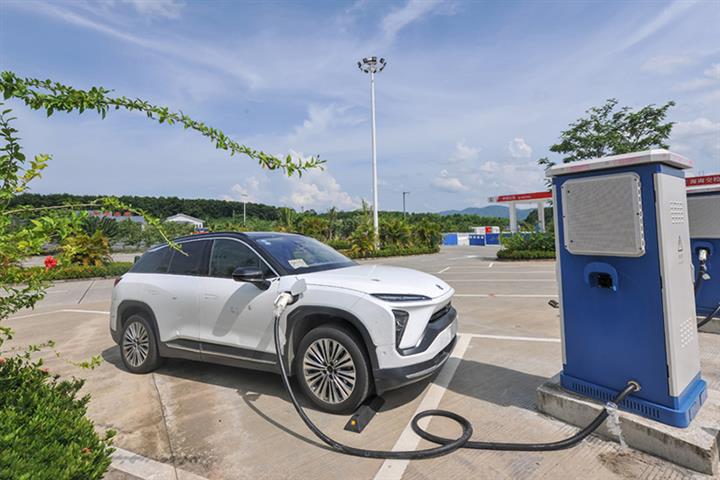 China's Chengdu, Hefei Join Cities Tapping Into NEV Growth
China's Chengdu, Hefei Join Cities Tapping Into NEV Growth(Yicai Global) March 14 -- More than 10 Chinese cities, including Chengdu and Hefei, have revealed policies to unleash the potential of new energy vehicle production for growth.
Sichuan province's Chengdu aims to build a domestically important NEV development and manufacturing base to raise the scale of the city’s NEV industry to exceed CNY150 billion (USD21.8 billion) by 2025 with an output of 250,000 vehicles, according to a document recently released by the local government. One deal should help the southwestern city reach its goal as Volvo Cars agreed on Feb. 28 to produce its new electric model and to upgrade to its current models in production in Chengdu.
China’s automobile industry is changing and cities that make gas-powered cars are facing challenges, Dr. Feng Lei, deputy director of research institution Hsmap.Com, told Yicai Global. "Motor cities" are becoming capital and technology-intensive instead of relying on heavy industries, Feng added.
Several cities are taking action to join the trend. Hefei in Anhui province strives to grow its NEV industry to surpass CNY700 billion with an output of more than three million vehicles, according to its plans. It aims to cultivate 10 companies, each with over CNY10 billion (USD1.5 billion) of assets by 2025, to become one of the top cities in both NEV production and output value nationwide.
Meanwhile, Chongqing intends to account for over 10 percent of connected NEVs produced and sold in China by 2025, per the southwestern city's plan.
Moreover, Guangzhou will have a capacity of over two million NEVs by 2025 to rank in the national top 3, per the southern city's government.
Startups are at the center of industry transformation as the biggest NEV manufacturing hubs are usually backed by one brand. Shenzhen-based BYD has joined hands with Xi’an, Nio has its China headquarters in Hefei, Xpeng Motors invests in Guangzhou, and Li Auto has a plant in Jiangsu province's Changzhou.
Editors: Shi Yi, Emmi Laine, Xiao Yi